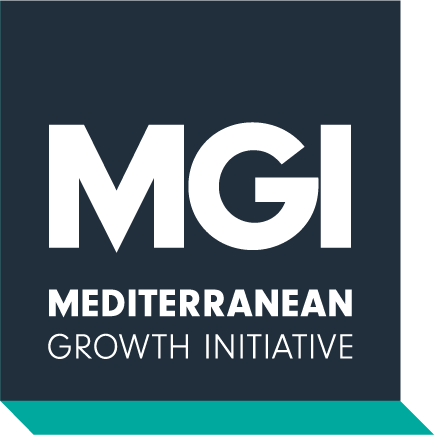Internet in the Med: North Africa needs to catch up
For the majority of people in the developed world, having access to the internet means to be able to work, be informed and contact friends and relatives. According to a BBC poll, almost four in five people around the world believe that access to the internet is a fundamental right, while on 27 June 2016, the United Nations Human Rights Council passed a resolution calling unfettered internet a basic human right.
Welcome to the internet
As the World Wide Web was not publicly available until 1991, internet usage was very limited in 2000, reaching a rate higher than 10% only in some European countries and in Israel. In North African Med countries, internet usage was virtually zero, with Tunisia being the only exception (3%).
Source: World Bank. Internet users are individuals who have used the Internet (from any location) in the last 3 months. The Internet can be used via a computer, mobile phone, personal digital assistant, games machine, digital TV, etc.
Progress
While internet usage grew rapidly after 2000 in all Med countries, the growth rate varied significantly, and there are still discrepancies. In 2015, all European Med countries, Israel and Lebanon had a usage rate above 60%. Syria and Libya were the countries with the lowest internet usage rate, with 70-80% of the population not using the internet at all.
The rest of the post takes a closer look at the trends across different areas within the Mediterranean.
France leading the way, Italy falling behind
France currently enjoys the highest rate of internet usage in the Med, having overtaken the previous leaders Slovenia & Spain in 2007.
Italy had the largest rate of internet usage at the end of the 20th century. From the start of the 21st century internet usage did not increase as much as in the other countries, and by 2015, Italy was among the European Med countries with the lowest internet usage.
In 2015, Albania was the country with the lowest usage rate, as only 63.2% of its population was using the net.
Source: World Bank. Internet users are individuals (% of population) who have used the Internet (from any location) in the last 3 months. The Internet can be used via a computer, mobile phone, personal digital assistant, games machine, digital TV, etc.
Algeria catching up
In contrast to European counties – where internet usage started increasing in the mid-1990s - in most North African countries internet usage started increasing at the beginning of the 21st century. Since then, Morocco and Tunisia have outperformed their North Africa peers, but are still to breach the 60% threshold.
Historically, the poorer performers were Libya and Algeria. However, from 2013 to 2015 the rate more than doubled in Algeria and by 2015 the country’s internet usage rate converged to Egypt’s.
Source: World Bank. Internet users are individuals (% of population) who have used the Internet (from any location) in the last 3 months. The Internet can be used via a computer, mobile phone, personal digital assistant, games machine, digital TV, etc.
Israel flying high
Historically, Israel has been the country with the highest internet usage rate in the Levant. From 2008 to 2015 the usage rate increased by more than 250%, reaching a value of 77%. During the period following 2008, internet usage increased significantly in Lebanon, and it is now at similar levels to Israel.
Source: World Bank. Internet users are individuals (% of population) who have used the Internet (from any location) in the last 3 months. The Internet can be used via a computer, mobile phone, personal digital assistant, games machine, digital TV, etc.
Connecting everyone
Internet usage is still far from universal. Many countries in North Africa and the Levant have 50-80% of their population not using the internet, while even in the more developed European countries the rate ranges from 20-35%. Bringing all citizens of the Med online is a challenge yet to be met.




